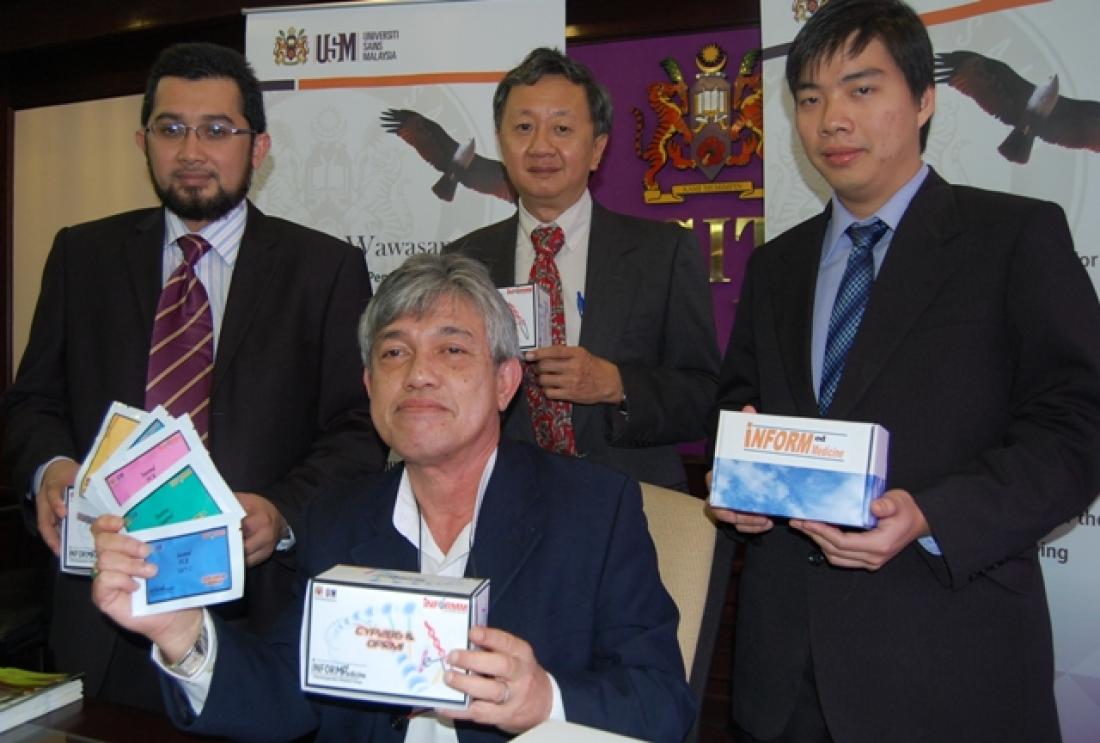For the first time in the world, two detection kits to identify the genes related to the control of methadone excretion [CYP2B6 and OPRM1Genes] and to measure the concentration of methadone have been introduced for this therapy.
The research, funded by a University Research Grant of RM 3 million began last year and was carried out by Prof. Rusli Ismail and his team of researchers from the Health Campus, USM Kelantan.
According to Prof. Rusli, approximately 80 percent of addicts in the country have HIV as a result of sharing needles and this number is expected to increase if no practical and pragmatic approaches are implemented.
He added that although the Methadone Drug Replacement Therapy introduced by the government has been in place since 2006, only 5% of addicts are following this treatment.
“There are many cases where the methadone dosage administered to addicts is inadequate and as a result, addicts return to their drug habit of using needles to inject themselves. There are also cases where there is an overdose of methadone and this leads to side effects which jeopardize their health.
“However, with the new method, we can identify whether the addicts actually take the methadone for treatment and we can also determine the appropriate dosage. This will help the addicts overcome their addiction and reduce the risk of HIV transmission through the sharing of needles,” he said in a press conference in USM today.
He went on to say that the administration of the appropriate dosage is important to ensure that addicts do not return to their habit of using needles to inject drugs.
“More importantly, this therapy enables the addict to function normally, without being influenced by their addiction. In fact, we are improving the addicts’ quality of life and indirectly, this will reduce the crime rate and other social problems,” he said.
So far, two clinics in Kota Bahru, Kelantan and Semenyih, Selangor have started using this therapy as well as the two detection kits for purposes of treatment and rehabilitation of addicts.
For further information please contact Izam Fairus Kamaruddin: [email protected]



